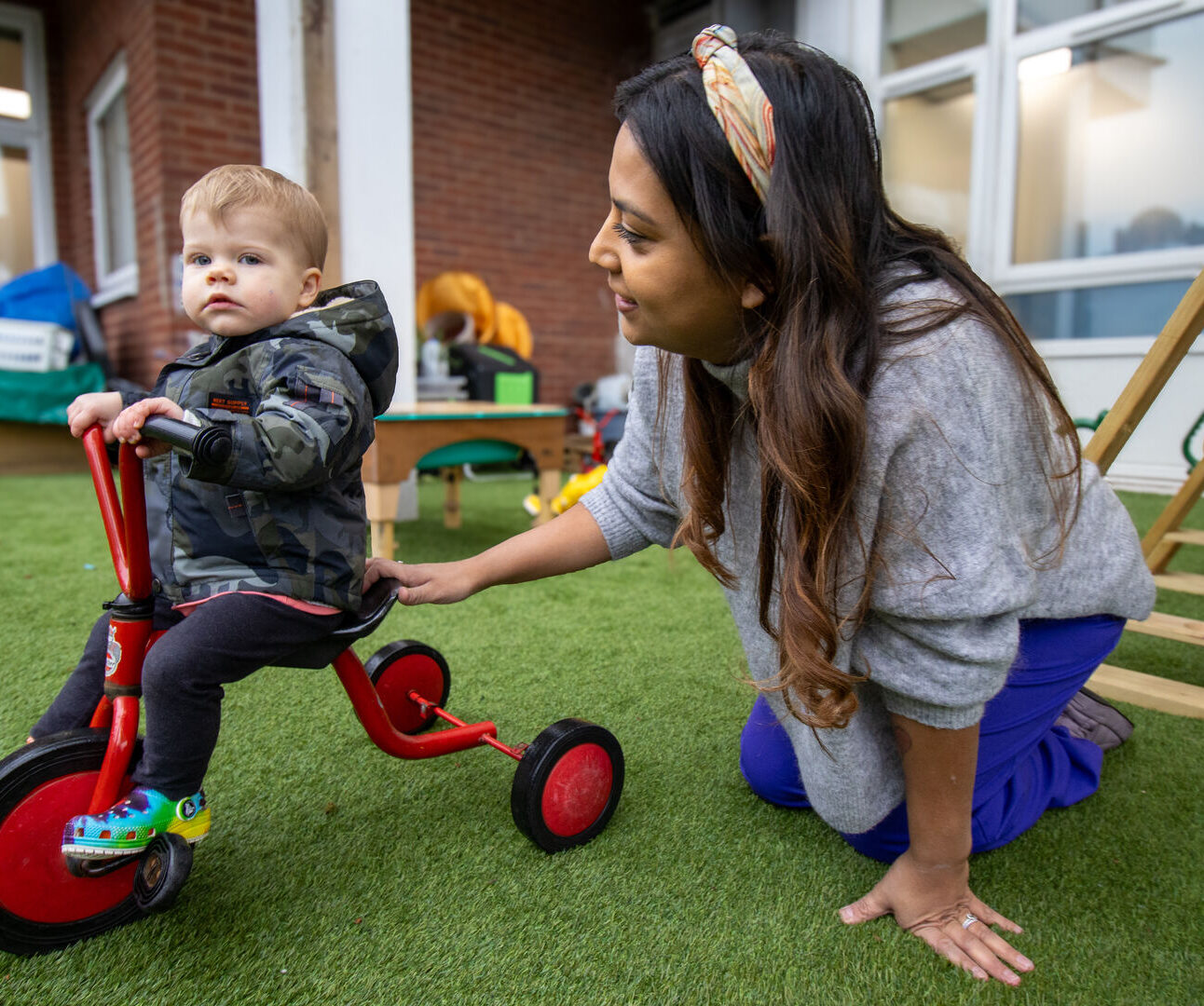
About us
Find out more about LEYF and how we put families and children at the heart of all we do.
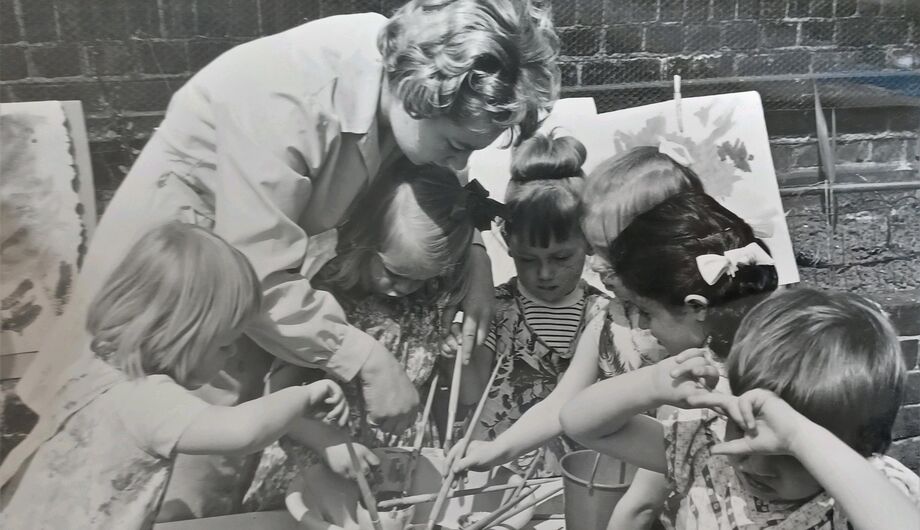
Find out more about our rich and varied history of social reform
LEYF has a long history of impacting the communities around us. Our work with children and families over the last 120 years ripples throughout the generations, and it’s a legacy that makes us very proud. Read more about our history, from our earliest days running maternal health clinics in Westminster to reaching thousands of children each year across London and changing their lives for the better.

The City of Westminster Health Society was founded in 1903 by a collection of doctors and philanthropists, among them was Margaret Horn who was a pupil of iconic social reformer Octavia Hill. During that time the mortality rate of infants in the heart of the capital was appalling – almost 12% of children did not live to their first birthday. There were hardly any healthcare facilities available to families living in such extreme poverty.

Horn and selfless volunteers (mostly women) pioneered child health and welfare decades before we had the NHS and many other modern agencies of today. In its early years, the Society provided Westminster’s families with medical and dental inspections, antenatal clinics, cookery classes and more. We even established our own training schemes for nursery staff and Early Years nutrition (which we still have today).

Following the Second World War, our focus shifted primarily to running high quality Toddlers’ Clubs and nurseries that helped prepare children for life’s big milestones, such as starting school. Growing with the ever-shifting demographics of London, we had opened 4 of these clubs by 1968.
In 1977, we became Westminster Children’s Society, with 6 Toddlers’ Clubs and nurseries attended by over 250 children per day. We remained pioneers of Early Years education and care – with a wide variety of activities to facilitate children’s development, like music and movement classes, library visits and road safety awareness.

Fast forward to 2006, we began the journey to become a social enterprise. Developing financial self-sustainability, we set about being able to offer the same high quality nursery experience to families across the city regardless of background.
And then, in 2009, with 19 nurseries on our books, we changed our name again – this time to reflect that we had expanded beyond Westminster’s borders. Today, as London Early Years Foundation, we support nearly 4,500 children a year, delivering high quality Early Years education and care from birth to 5 years old – no matter what the postcode.

1820s-1920s –Social reform movement in the Victorian age campaigned for better conditions for poor populations in Britain’s urban centres. They fought for the abolition of child labour and the emancipation of women. Among the key influential figures of this period were Mary Wollstonecraft, Emeline Pankhurst and Octavia Hill – of whom Margaret Horn was a pupil.
1903 – The City of Westminster Health Society was founded. Among its first pioneers, Margaret Horn began visiting young families caught up in poor living conditions and provided a range of support and information along with selfless volunteers (mostly women).

1907 – Started distributing leaflets with information about child health in English, Welsh, Italian, French, Flemish and Yiddish for local Westminster residents.
1911 – Initiated a collaboration with National Training School of Cookery – students visited homes to provide families with practical cooking instruction.
1912 – The Society soon established centres on Greek Street and Rochester Row to provide the community access to medical and dental services, ‘Mothercraft’ and antenatal classes as well as cooking and needlework workshops. These continued in spite of the First World War.
1926 – Moved from 2 sites to one centre at Page Street.
1933 – The Society had raised enough funds to establish its own maternal welfare service at Marsham Street (where our Central Office now is). It was opened by the Queen Mother, then the Duchess of York, and included a day nursery, sewing and mothercraft lessons.

1943 – During WWII things carried on almost as usual – apart from Marsham Street being used as an Air Raid Warden rest point! The nursery supported mothers who were busy working for the war effort. Back then, the day nursery cost 6 shillings a week (roughly £10).
1945 – Along came our NHS (National Health Service). While healthcare was to become universally provided, the Society continued with its more experimental activities in promoting child welfare. With 2 nurseries now, these were run in partnership with London City Council.
1949 – Margaret Horn dies.
1955 – Coronation year: The staff raised funds to gift each child a prayer book accompanied by a trip to Herne Bay for parents and children to relax and socialise.
1959 – The Society had by then shifted focus primarily to running Toddlers’ Clubs to prepare 3- and 4-year-olds for school as well as day nurseries.
1966 – Now 4 Toddlers’ Clubs and nurseries in Westminster.
Patricia Prior (Society’s Secretary), 1971“We are the pioneers in Toddlers Clubs and the mothers appreciate the service very much.”
1970 – A fundraising bazaar was opened by BBC DJ Ed Stewart, who interviewed some of Marsham Street’s children live on radio.
1972 – The Lord Mayor of Westminster opens a new play bus called ‘Nellie’ (an ex-London bus converted into a nursery unit complete with toys and a slide).
1977 – The Society is renamed Westminster Children’s Society – now with 6 settings.
1980 – Some of our children paid a visit to Buckingham Place to give the Queen Mother an 80th birthday card.

2001 – Lisson Green Nursery opens a ground-breaking Sensory Studio with much excitement. Bright lights, sounds and water features were installed in order to stimulate young minds in this innovative environment.
2003 – In our centenary year, we were up to 9 nurseries and, to celebrate, we threw a grand tea party for 500. The event kicked off with a ‘Rumble in the Jungle’ concert featuring 300 children and members of the Royal Philharmonic Orchestra.
2006 – We began the journey to become a social enterprise to make us financially self-sustaining, and allowing us to offer the same high quality nursery experience to families across the city regardless of their background.

2009 – We become London Early Years Foundation, or LEYF for short. This move was to reflect our growth beyond the boundaries of Westminster after opening settings in Camden and Barking and Dagenham as well as to highlight our work in training and research. At this point, we had 17 nurseries and plans to expand our horizons even further.
2013 – June O’Sullivan, our Chief Executive, hosts the first ever Ofsted Big Conversation, bringing together representatives of Early Years Childcare Providers and Ofsted across the UK.
2019 – Our Chef Academy was launched so we could provide our chefs with special qualifications for Early Years nutrition. The Academy is also a hub for research and evaluating children’s food consumption in nurseries across the country.
2020 – Pre-pandemic, Princess of Wales Kate Middleton visits Stockwell Gardens Nursery & Pre-school to serve the children their breakfast. This was also the year we Doubled Down to provide 15 extra hours of funded childcare to our most vulnerable children.
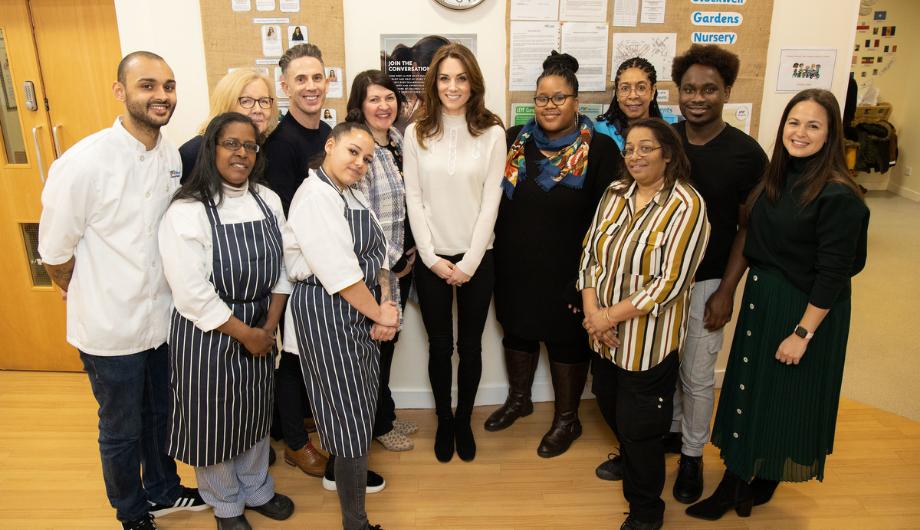
2021 – We Launch our Level 4 qualification in Sustainability for Early Years, enabling staff to become Green Champions.
2023 – Our 120th year with 40 nurseries across London, and counting. We’re soon to open our first purpose-built Thames Reach Nursery.

Find out more about LEYF and how we put families and children at the heart of all we do.
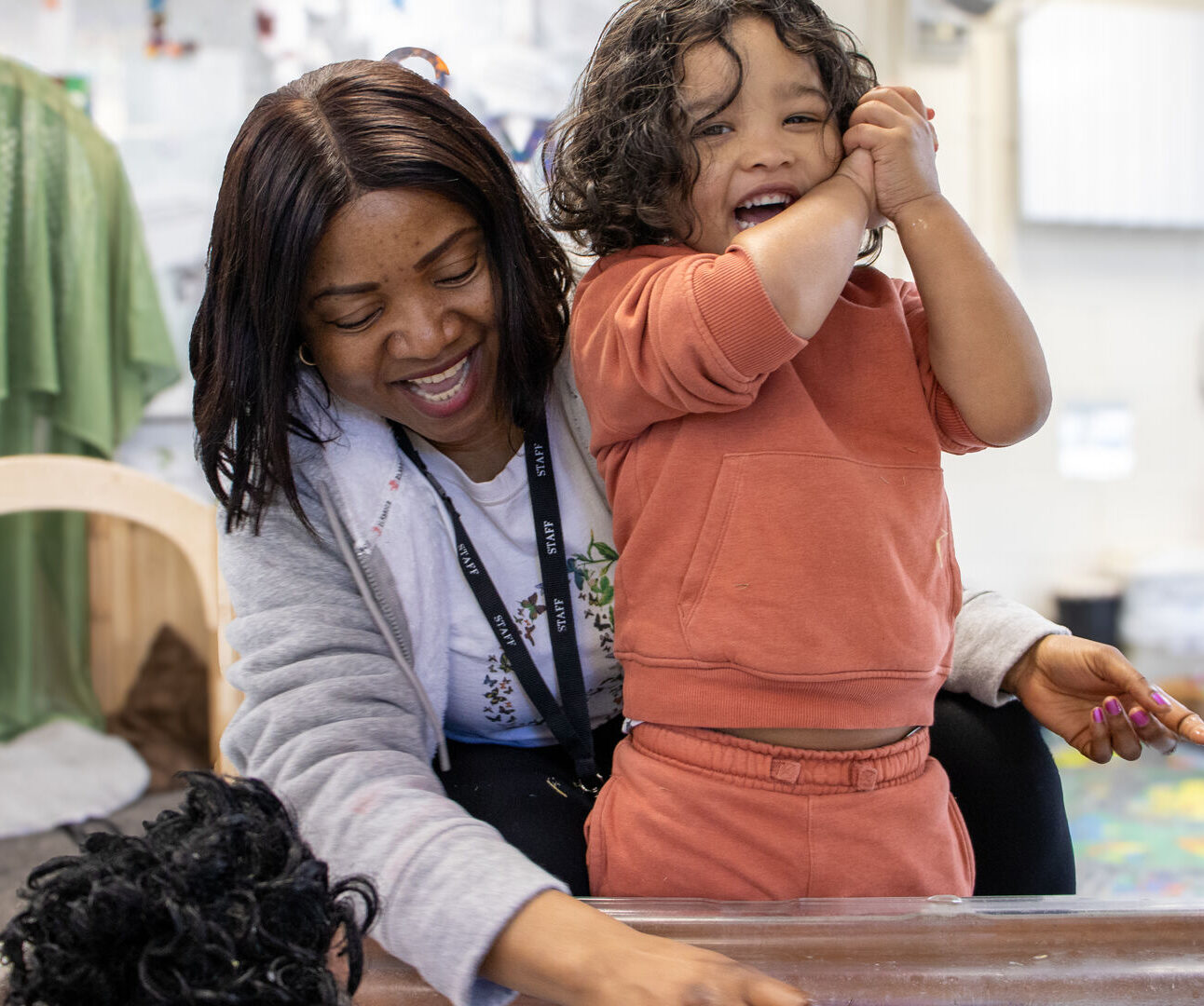
We use experience gained from decades of working in Early Years to shape our service and lobby for changes.
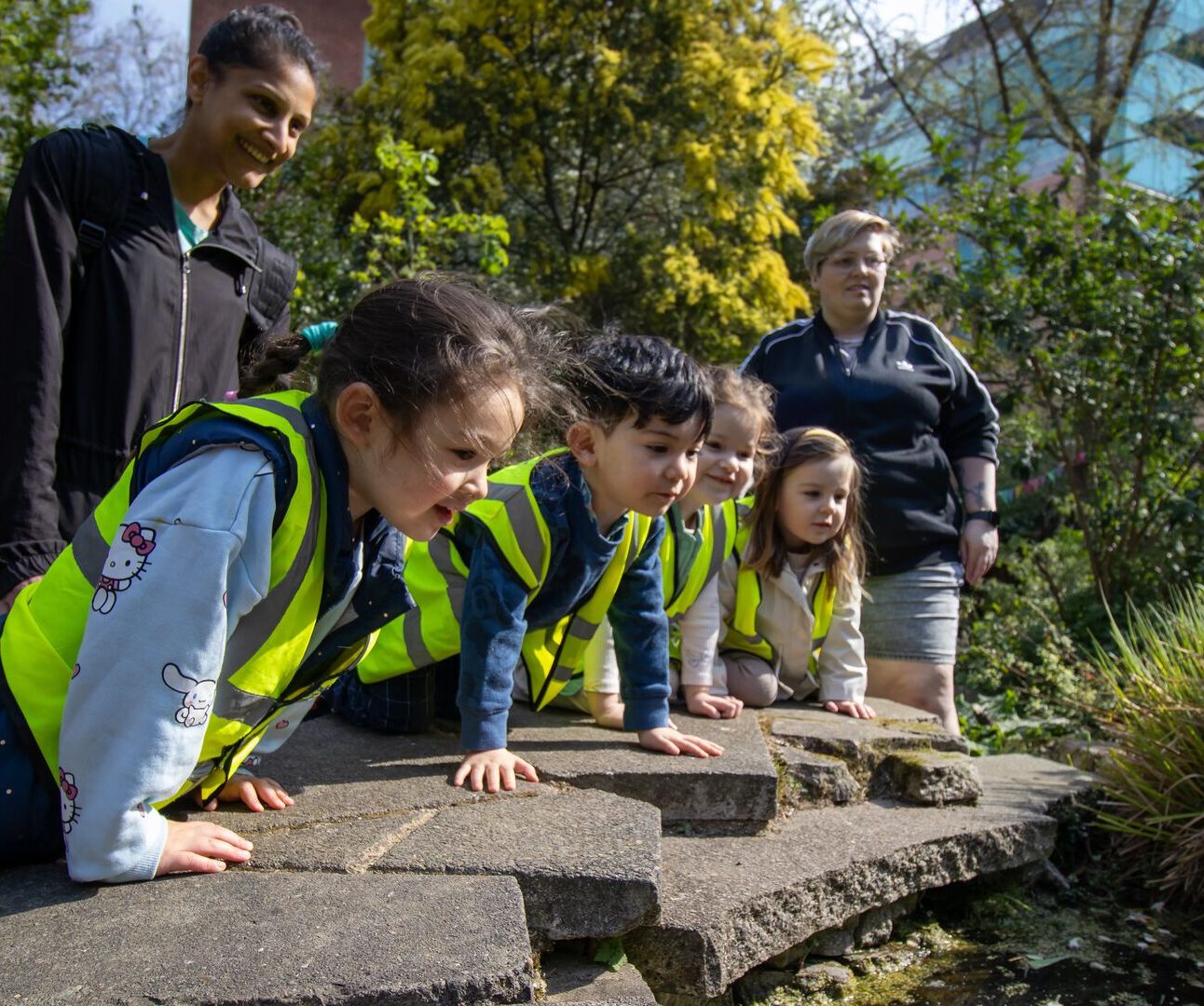
Our strategic ambition is to transform Early Years education and care in the UK, so that all children have an equal opportunity to succeed.